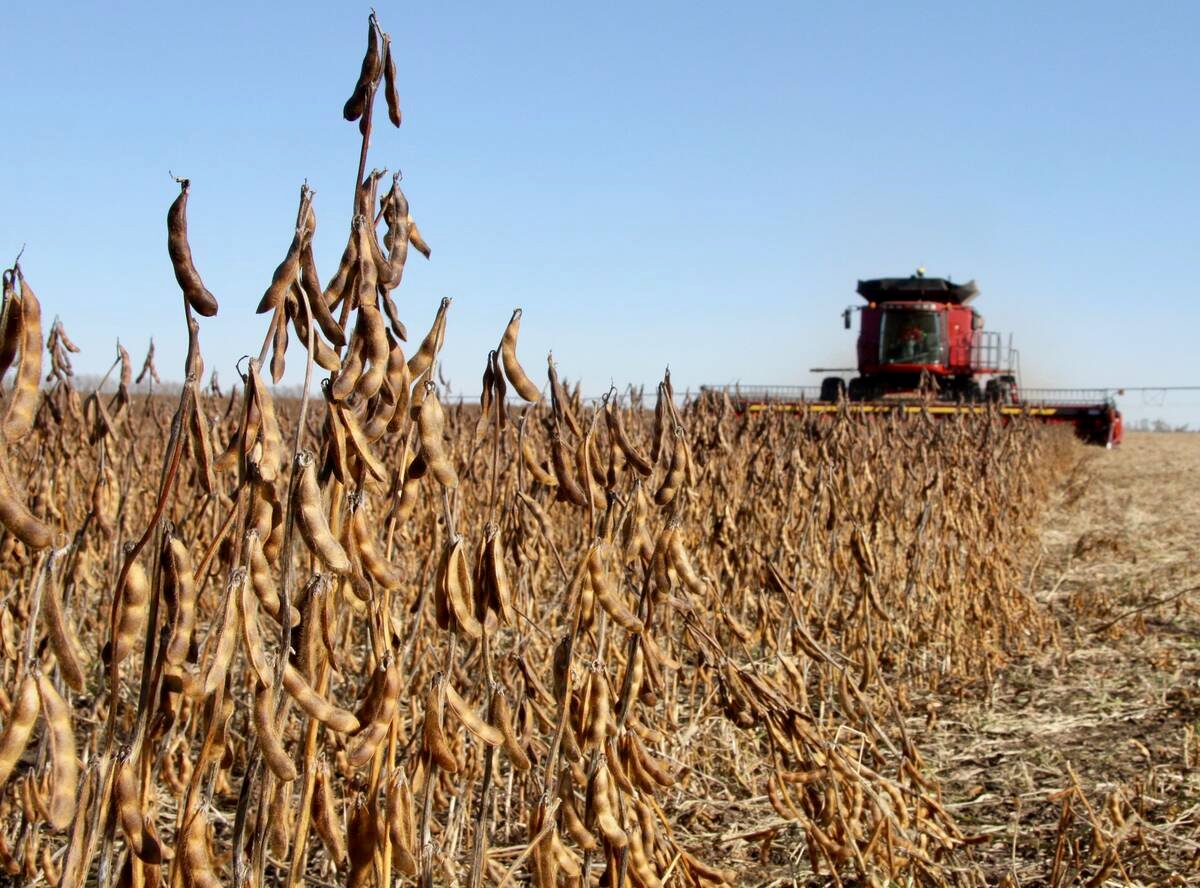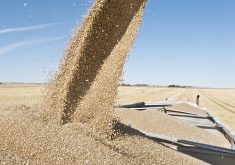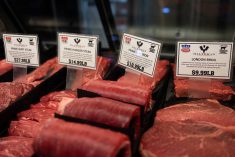At a time of year when many farmers dream of escaping to more tropical climes, government officials from a winter resort country made a trip to Winnipeg.
The Dominican Republic has average temperatures around 30 C in mid-January.
But with Manitoba temperatures dipping below Ð20 two weeks ago, Eligio Jaquez, the Dominican secretary of state of agriculture, visited Canada to sign the first-ever agreement between his government and a Canadian company.
The agreement is with Northern Sunshine Farms, a Winnipeg importer and exporter of fruits, vegetables and edible beans.
Read Also

U.S. soybean crop was not all roses this year
The USDA is forecasting record U.S. soybean yields but for some growers it was a disastrous year due to excess moisture.
The company started exporting pinto beans to the Dominican Republic in 1997, after president Ray Beavis met an importer at a trade show.
Foot in the door
Over the next five years, the company plans to help the country develop its pinto bean industry. It’s part of the company’s long-term strategy for doing business in the Dominican Republic, said René Gantzert, vice-president of corporate development for Northern Sunshine Farms.
Agriculture is a major contributor to the Dominican Republic’s developing economy, said Gantzert. But the industry is far from modern. It’s not uncommon to see farmers behind a plow pulled by oxen.
However, the tourism industry is booming. As the country’s economy improves, Northern Sunshine Farm wants to be part of the growth.
“I guess we sort of take a more macroeconomic view of things,” Gantzert said.
In the short term, the agreement helps Northern Sunshine Farms get access to Dominican government import permits, he said.
Over the next five years, Northern Sunshine Farms and its Dominican joint-venture partner will find the best varieties of pinto beans for Caribbean growers and provide them with seed.
They will buy the beans and process them, initially with a mobile processor, and later at a permanent plant they plan to build near the port of Santo Domingo.
Other opportunities
Northern Sunshine Farms will have exclusive rights for selling the beans in the Dominican Republic, and opportunities for selling seed, fertilizer and equipment. The company also hopes to buy land from the Dominican government and produce its own beans.
National consumption of beans is around 100 million pounds, said Gantzert. Local production depends on the weather.
“It fluctuates so dramatically,” he said, noting the island can produce 20 to 40 percent of its own needs.
North Dakota, Colorado and Idaho have been major exporters to the country, he said.
But eventually, the Dominican Republic hopes to become self-sufficient in beans, and export some to other Caribbean countries.
Test farms have been growing Manitoba seed since late November. It will be harvested in late February.
On a trip to the country in late December, Beavis reported the Manitoba varieties look much healthier than local crops, said Gantzert.
Northern Sunshine Farms is in the midst of hiring Manitoba bean experts to work in the Dominican Republic. The next crop will be planted in May, since the tropical climate allows for two growing seasons each year, said Gantzert.














